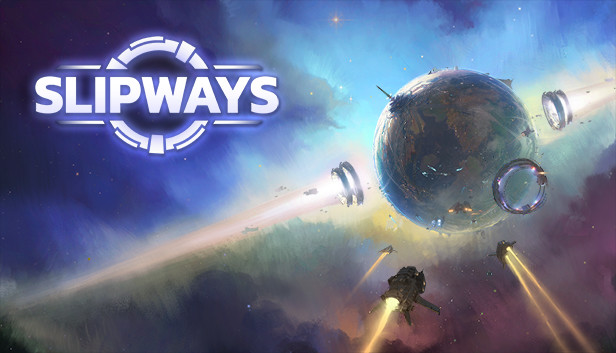I love 4X games. I also love Science fiction, so make a science fiction 4X game and I am there like a....a....very fast thing. And that's how I ended up buying this game called Slipways that advertised itself as a 4X game you could play a session of within 30-60 minutes.
Slipways is a simple game: you colonize planets and then connect them through the titular slipways to level them up to make more money to repeat the process.
To start with, you have just a wormhole to send probes through to scan signals for potential planets to colonize. Some signals can turn out to be space station ruins, asteroids, or nothing at all. However, near the wormhole there are tons of planets so at first you are spoilt for choice on what to colonize and what planetary specialization the colonized planet should be.
Each planet makes a certain export product but need a import product to go beyond the level 1 of 'struggling'. Once they've got a import of the kind they require, for example mining planets require people to level up, they go to 'established'. If you manage to export the product of the planet to 2 other planets and have two imports, plus supply the needed new products to level up, it becomes 'successful' Level 4, the final level of a planet is 'prosperous', and it requires 6 imports or exports, and has to be connected to 3 'successful' planets as well.
level 1 planets are a drain on your money and happiness of the sector of space your colonizing. Not fixing level 1 planets means that the already bad situation will just get worse, but level 2 planets provide good income, level 3 even more, and level 4 the most. They also provide more score, which is how your measured up at the end of the 25 years of the game session. Luckily, time only moves forward when you do an action, eg, colonize a planet that takes 3 months, time move forward 3 months and then stops until you do another action. Even better, most actions can be undone at a click of a button, except for scanning for planets, which can't be undone.
The game also has a tech tree, which you can research techs by building space station labs in the session, but the actual techs you can research are chosen by the council species you pick. At the start of the game you pick 3 out 5 possible species to be on your council, which affects the techs you have, the types of starter perks you get, and what kind of missions you'll get to improve score will be given. There is a science based council race, a industry one, a trade one, a food/ecology one, and a mining/resource gathering/exploration one. So you can somewhat cater to what playstyle you like.
The game starts with the campaign locked until you get a 3 star score rating. And while the game is easy to play, it's extremely difficult to master. My personal example, is that I didn't know leveling up planets was the way to win big points at the end of the game, as well as stop happiness from falling so far that the people in the sector kick you out before your 25 year term is up. So I failed at least a dozen times my first dozen tries.
The game is also addictive in a weird way. I have 10 hours on it at least, although some of that was in offline mode on steam, so who knows how many I played. While it can be frustrating, I found it a relaxing in a way, and it became more so once I figured out the mechanics.
Unfortunately it is not a 4x game, for several reasons, one of which is the total lack of competition ingame, but it's still a good game, so I give it 4 stars out of 5 for what it is. Unfortunately it's a short experience, with most sessions being under 20 minutes for me, and I also don't see myself playing it again anytime soon, but it was only 16 or so dollars for me, and I think it's well worth the price.
That's all for now, see you next review!

